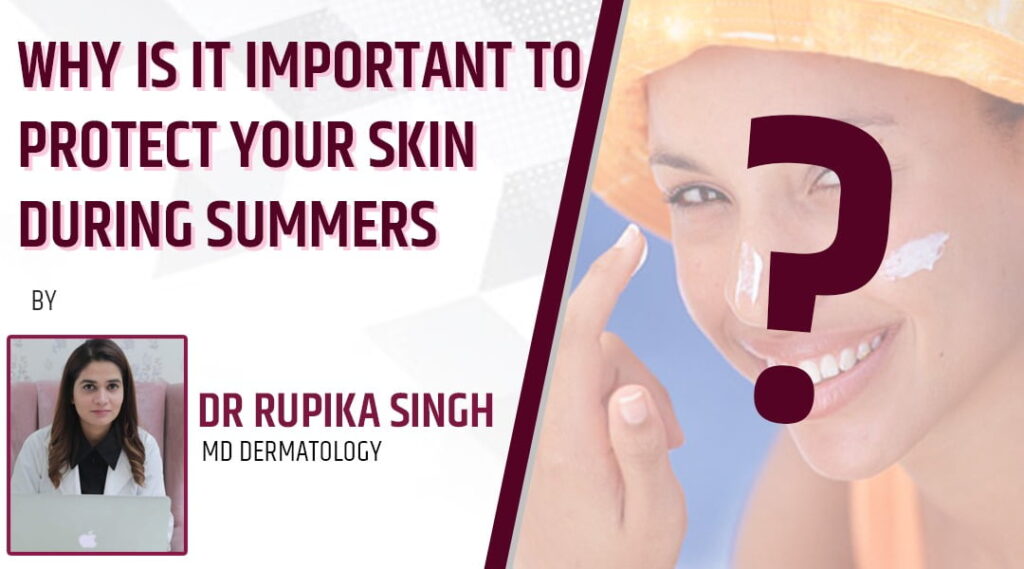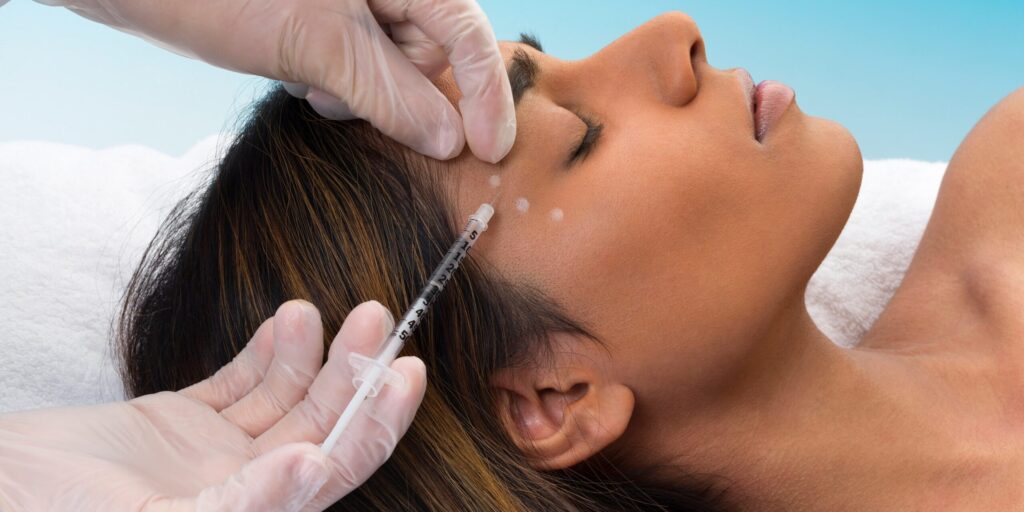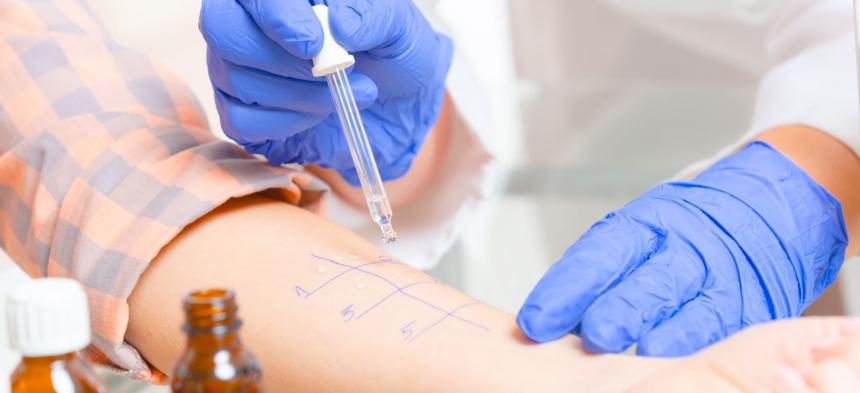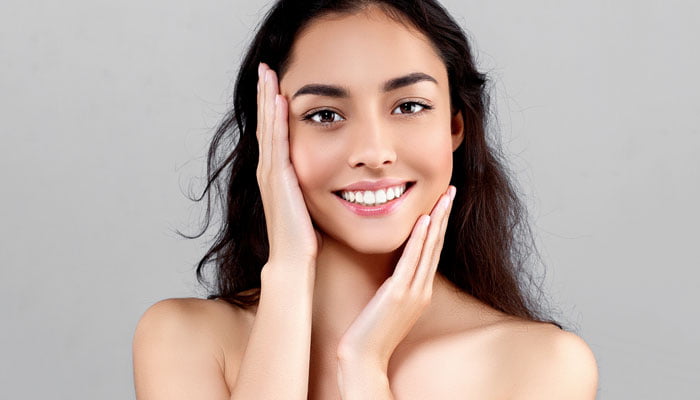Summer has finally arrived after what seemed like a long winter and a dreary spring. Most of us associate summer with emotions of warmth and relaxation, as well as carefree vacation time spent at the beach or in some faraway exotic location. The sun is necessary for our survival and provides numerous health benefits, such as influencing the level of vitamin D in our bodies and controlling feel-good chemicals, which help to regulate our mood.Book your appointment with the best skin doctor in Ghaziabad at Akiya Aesthetics.

However, did you realise that UV radiation causes 90% of noticeable skin ageing? Even if they are not tanning or getting sunburned, most people have no idea how much the sun impacts the appearance of their skin. Unfortunately, many young individuals believe they are indestructible and do not need to be concerned about sun protection. The desire to appear tanned is more important to them than the fear of getting skin pigmentation or skin cancer. On the other end of the spectrum, many seniors dismiss the importance of daily sun protection, claiming that the “harm has already been done.”

However, the truth is that solar damage accumulates over time. Whether you’re 16 or 60, if you don’t wear sunscreen, you’re exposing your skin to the sun’s dangerous rays. This is why skin doctors advise everyone, regardless of age, to practise sun-safe practises.
Here are ten essential ideas to help you protect your skin this summer.
- The most obvious piece of advice is to avoid direct sun exposure between 12 p.m. and 4:00 p.m. during the day, when the sun’s detrimental effects are at their peak.
- For daily protection, use a broad spectrum (UVA/UVB) sunscreen with an SPF of at least 15. Use a water-resistant, broad-spectrum (UVA/UVB) sunscreen with an SPF of 30 or greater for long outdoor activities.
- 30 minutes before heading outside, apply 1 ounce (2 tablespoons) of sunscreen to your entire body.
- Reapply every two hours or immediately after swimming or sweating profusely.
- Don’t overlook areas such as the tops of your ears or the back of your neck, which are popular locations for pigmented patches and malignancies. Because the skin on the face is thinner and frequently exposed to UV radiation, it is extremely vital to apply sunscreen abundantly.
- Keep an eye out for indirect or diffuse UV light, radiation that has been scattered by clouds on a cloudy day and other elements in the atmosphere, and/or radiation that has been reflected back from UV-reflective surfaces. Sand, for example, reflects an additional 15% of UV light, whereas water reflects up to 10%. In reality, a considerable portion of the UV light we receive is indirect, even when we are sitting in the shade of a tree or an umbrella.Book your appointment with a skin specialist doctor in Ghaziabad at Akiya Aesthetics.
- Clothing is the most efficient type of sun protection available. It is our first line of defence against the sun’s potentially damaging UV rays. In general, the more skin you cover, the better. Sun protection is best provided by materials that are tightly woven or closely knitted, as well as synthetic and semi-synthetic fibres (such as polyester and rayon). The darker the clothes colour, the better the protection. Hats with a three-inch or larger brim that extends all the way around to shade the face, neck, ears, and even the top of the shoulders provide the most protection. Select sunglasses that protect the eyes, eyelids, and as much of the surrounding area as feasible. They should include a labelling stating that they block 99-100 percent of all UV radiation.
- When travelling by plane, train, or automobile, keep in mind that while glass blocks UVB rays rather well, it does not filter UVA rays. Windshields are routinely coated to protect drivers from some UVA, while passenger windows are not. For long-term peace of mind, consider placing clear UV-blocking window film in your automobile.
- Be wary of photosensitivity, a condition in which a combination of sunlight and certain medications or drugs causes skin inflammation. Redness of the skin, which may resemble sunburn, is one of the symptoms. Among the most common photosensitizing medications include antibiotics, malaria treatments, and diabetic medications, to name a few. Read the warning labels on your drugs. If you are using a drug that has a photosensitivity warning, take extra precautions and seek emergency medical attention if you have an undesired skin reaction.
- For those of you taking skin treatments to treat pigmentation, it is safer and more successful to apply skin lightening creams or creams containing AHA in the evening or at night when the melanocytes, the pigment producing cells, are not activated by the sun.
- A self-skin inspection, when performed on a regular basis, can alert you to changes in your skin and aid in the early diagnosis of skin cancer. It should be done frequently enough to develop a habit, but not so frequently that it feels like a hassle. For the majority of people, once a month is sufficient. Consult your dermatologist on a regular basis for a thorough skin evaluation. This also applies to people with dark skin tones. Despite popular opinion, anyone of any race, ethnicity, or skin colour can develop significant skin pigmentation issues or skin cancer. To treat a broader region with topical treatments such as a chemical peel, we prescribe field procedure. It is far preferable to be proactive and stay on top of things.

Natural, bright, healthy skin, we believe, is the aesthetic that helps everyone appear their best. When you tan, whether indoors or outdoors, you increase the indications of ageing and your risk of acquiring skin cancer. Allow your skin to fade back to its original colour on sections of your body that have had little or no sun exposure, such as the inside of your arms, to protect and enhance its natural brightness. This is your unique, lovely, naturally glowing skin tone. The combination of regular exercise, a balanced diet, and frequent skin treatments with a dermatologist to keep pigmentation at bay will then help maintain a bright skin shine throughout time as part of a healthy lifestyle. It’s never too late to start your new healthy skin resolutions; the first simple step is to wear sunscreen every day, which will immediately help to reverse sun damage and guard against premature skin ageing and damage. Book your appointment with a skin specialist doctor in Ghaziabad at Akiya Aesthetics.






